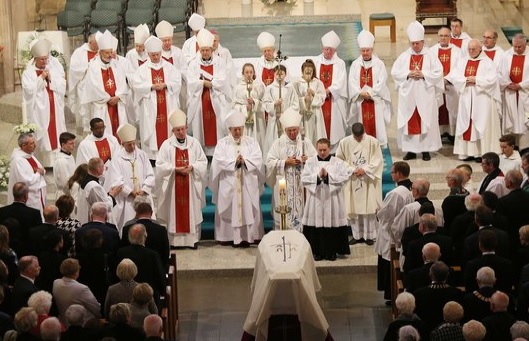
Row upon row of bishops, all wearing their episcopal robes and high pointed hats. Dozens of priests and other clerics. Political figures from many quarters, including the Irish President. And inside – and outside – Saint Eugene’s Cathedral in Derry, thousands of women, men and children.
They had come to honour an extraordinary church leader. They had come to pay respect to a formidable campaigner for justice. They had come to make a final stand with a humble man.
They were here for Edward Daly – a small, frail boy from Belleek who grew to become a giant of modern Irish history.
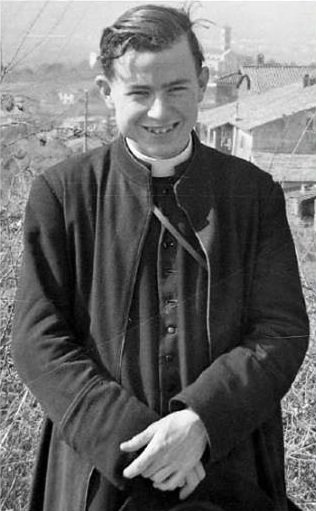
The scenes inside Saint Eugene’s on Thursday 11th August 2016 are unlikely to be repeated again in our lifetime. The Catholic Church across Ireland is under pressure. The priesthood is in decline. Attendances at Mass are dwindling.
But the crowd that thronged the old, forbidding, granite cathedral in Derry’s Bogside area was demonstrating that what truly matters is the man, not the organisation.
Edward Daly – or the Most Reverend Doctor Edward Daly, Emeritus Bishop of Derry, to give him his full title – was a man of contradictions. By nature, gentle and softly spoken – yet a strong and consistent voice for peace that made itself heard above the guns and bombs of the Troubles. A shy and diffident man, but one that loved to be involved in showbusiness and who adored music, comedy and drama. At heart a conservative Roman Catholic, yet he argued for priests to be allowed to marry.
Above all, Bishop Edward Daly was a man elevated to a position of power and privilege who never lost the common touch. He was at home among the ordinary people of Derry. He may have been born in Donegal and raised in Fermanagh, but he loved Derry. And the city of Derry took him to its heart and claimed him as its own.
On the day of his funeral, his sister Anne Gibson said: “We always knew Derry loved him, and he was obsessed by Derry and the Derry people – he thought they were the greatest. And that became a reality for us when we saw the sincerity of their prayer, the sincerity of their grief, and we realised we weren’t on our own.”
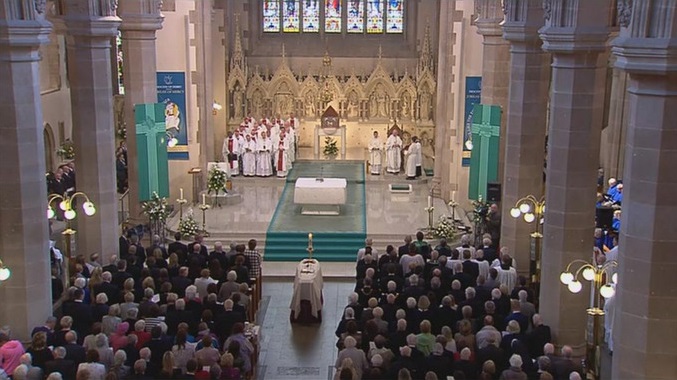
His requiem Mass was filled with all the splendour and pomp that Irish Catholicism could muster. All ranks were on parade – from Cardinal and All-Ireland Primate, down to priest and deacon. The air was filled with perfumed smoke and sacred song. A thurible beauty was born.
But this service was all about the man. A man who served his church. And above all, a man who served his people.
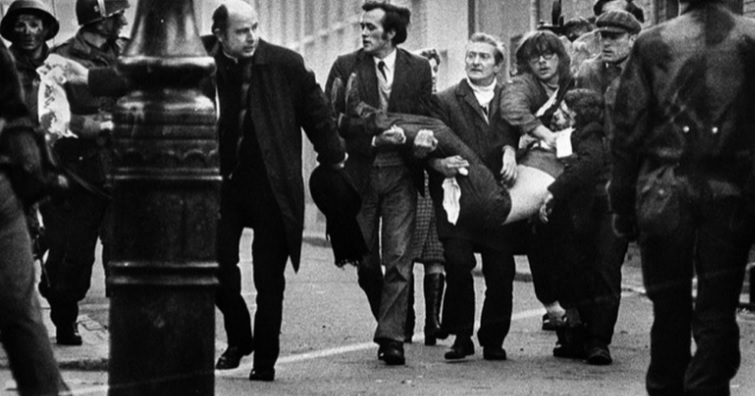
The wider world knows the tale of the courageous priest who faced the bullets of Bloody Sunday to lead a dying man from the killing zone.
Derry knows all about that courage. But the city also knows about Edward Daly’s wider bravery. They know about the man who was weakened by serious illness, but used his enforced retirement to minister to patients in the Foyle Hospice. He brought comfort, contact and consolation to the dying. He willingly gave a commodity that he did not possess in abundance – his time.
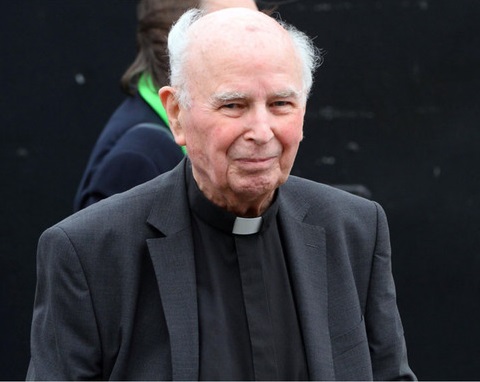
At his funeral, one could not fail to observe that the thousands of ordinary people who patiently endured the grey drizzle outside Saint Eugene’s were not doing so out of some long-held sense of duty.
They were there because this was THEIR bishop. This was a man who had stood with them during Derry’s darkest hours. A man who lit a candle of hope that flamed into a beacon of humanity.
They were there because they truly loved this man. And that is truly remarkable.